Earth and Human Activity

Educators and Parents, Sign Up for The Cheat Sheet
Weekly updates to help you use Science News Explores in the learning environment
Thank you for signing up!
There was a problem signing you up.
-
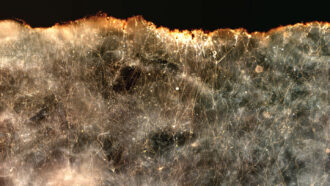 Environment
EnvironmentBacterial ‘living wires’ could help protect the seas and climate
Long, thin bacteria that conduct electricity may be able to help clean up oil spills and reduce emissions of methane, a powerful greenhouse gas.
By Nikk Ogasa -
 Humans
HumansEight billion people now live on Earth — a new record
The global population hit this milestone on November 15, according to an estimate from the United Nations.
-
 Agriculture
AgricultureLet’s learn about eating bugs
Eating more insects, rather than pork, beef or other kinds of meat, may be better for the planet.
-
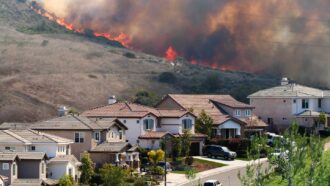 Earth
EarthAnalyze This: Wildfires are pumping more pollution into U.S. skies
Researchers wanted to study the health effects of wildfire smoke. But they realized they didn’t know where it was and how much exposure people had.
-
 Environment
Environment‘Forever’ chemicals show up in students’ school uniforms
Researchers found PFAS “forever chemicals” in kids’ school uniforms and other clothing. Studies have linked these compounds to health risks.
-
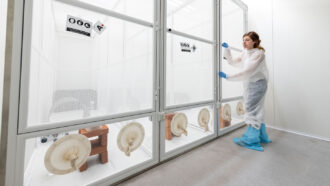 Health & Medicine
Health & MedicineShould we use a genetic weapon against mosquitoes carrying malaria?
One gene drive to eliminate malaria seems to work in the lab. Now it’s time to ask local people if they want it released in the wild.
-
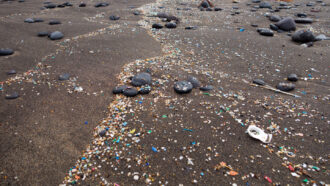 Materials Science
Materials ScienceLet’s learn about microplastics
Microplastics have turned up everywhere from the highest mountains to the bottom of the ocean — and even inside animals and people.
-
 Climate
ClimateWarming temps could turn some blue lakes green or brown
Slightly warmer summers could cause thousands of blue lakes to become a murky green or brown, according to a tally of color in 85,000 lakes worldwide.
-
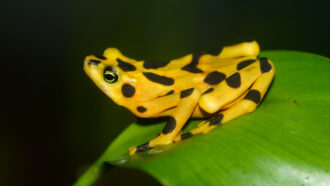 Animals
AnimalsSome spikes in malaria cases may be tied to amphibian die-offs
Amphibian deaths from a fungal disease may have led to more mosquitoes — and an increase in malaria cases in Costa Rica and Panama.
-
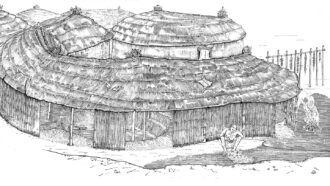 Humans
HumansWhat does charred ancient poop reveal about early animal-raising?
Evidence from the dung may push the onset of animal raising back 2,000 years earlier than previously thought.
-
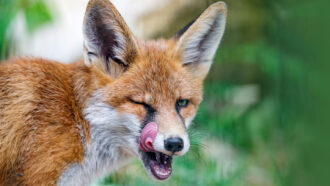 Animals
AnimalsWatch: This red fox is the first spotted fishing for its food
Big fish in shallow water were easy pickings for this red fox. It’s the first of its species known to fish.
By Freda Kreier -
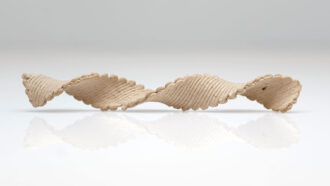 Tech
TechNo trees were harmed to 3-D print this piece of wood
How clever! Scientists used print-speed adjustments to control how flat, 3-D printed shapes morph into complex wooden objects.